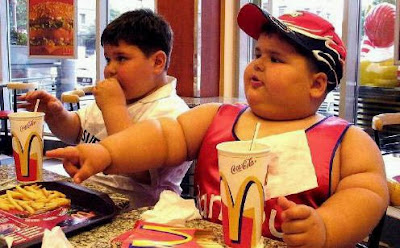What McDonalds resurgence tell us about US capitalism
In the late 1990s McDonalds was a basket case among major transnational corporations. Sales slumped as people in Europe and the US tired of burgers and turned to the multitude of fast food alternatives, especially Tex-Mex style food in the US. The company was hit by a wave of criticism of the health and environmental damage of its food and by attacks on its fiercely anti-union labour practices. Shares slumped to an historic low, a programme of restaurant closures started and some of its franchisees went bust – bad news for a company which relies on franchises for around half its restaurants.
Now the news is very different. Every quarter sees burgeoning sales – income was up 6.4% in the last quarter of 2006 and its share price have risen 25% in the last year. And the reasons for this resurgence are utterly revealing about modern capitalism, and US capitalism in particular. Although the biggest area for McDonalds’ international expansion is China, a huge potential market, the biggest turnaround is in its crucial US home ground.
Here McDonalds has responded by two key steps: first its restaurants stay open longer and second they have greatly diversified the menu. The latter step was a transparently obvious move given a burger-jaded public. The first would have been less obvious in the 1950s and 1960s, but is a winner today. It’s summed up by restaurant analyst John Glass, quoted in Business Week, “People’s days are longer. So are McDonalds restaurant hours. This is a natural evolution to capture more business”.
“Natural evolution” it might be in terms of McDonalds’ sales strategy, but natural evolution it most certainly is not in terms of the lifestyles of American workers. Now more than 40% of all McDonalds are open 24 hours a day – a spectacular increase in the last five years. More of those who do have a few hour closure period have extended their hours beyond the previously typical 17-hour 6am–11pm open period. Being open all night is there to capture the business of the growing army of shift workers, or workers who just work very long hours, in the country which is the sleep-deprivation capital of the world. As a successful franchisee in North Carolina puts it, “There are so many customers out there at all times of the day, we have to be out there too”.
A key change – initiated around 1998 when the company’s reform programme began – is the prominence of breakfast items on the menu. Sales from 5am-11am in the US amount to around 30% of a typical day’s sales. Eating breakfast out is a big deal in US cities, much more than in Europe. It tells you a lot about the structure of the working day on the other side of the Atlantic.
Careful watchers of US TV series like NYPD Blue will notice that suspects, when questioned, always left their house “around 6.45am” or “7am”. Of course there are many European workers who leave home at these early hours, but many millions who typically start their day at 9am and leave not before 8am.
But it’s not just the longer opening hours and concentration on breakfast that are tell-tale symptoms of a country where people are made to work continuously longer and harder. The type of meal is revealing as well. Nearly two-thirds of McDonalds US business is done at drive-through windows. A popular meal for these drivers tends to be the specially designed Snack Wrap – a strip of deep-fried chicken, with cheese, lettuce and a sauce in a folded tortilla. Before it was launched last August the company experimented with the size of the tortilla and the consistency of the sauce to discover one crucial thing – was it easy to eat with one hand while driving, and did the sauce drip?
So it’s not just the more and more American workers don’t have time to eat at home, many have to eat on the go, while traveling to and from or during their work.
The process of turning the day into a 24-hour profit opportunity is a circular one. While McDonalds with its huge number of outlets currently dominates the breakfast market, competitors like Burger King, Wendy’s, Starbucks and Dunkin’ Donuts are rapidly trying to address the same market. Which means a bigger section of the restaurant workforce, hundreds of thousands of people, having to work night hours too. Another twist of the neoliberal screw.
While the company is trying to address burger-resistant customers with a range of new products and with its McCafé initiative, the most popular foods remain the double cheeseburger and fries. Both are high in fat and sodium. Other companies have tried to reduce or eliminate trans-fats from their foods, but McDonalds says this impairs the flavour. Which makes the comment of Michael Jacobson, director of the Center for Science in the Public Interest, self-evident, “More people going to McDonalds means poorer health”.
And there’s another health twist. A 2004 scientific report showed that sleep-deprived people have enhanced levels of the hormones that cause hunger, and are thus more likely to be overweight. Overweight people are much more likely to have sleep problems, setting up a vicious circle of declining health.
It’s 150 years since Marx pointed out that the crucial way for capitalism to increase surplus value and hence profits was extending the working day. Neoliberalism means people working longer and harder. It means much less opportunity to have sit-down meals with family and friends. It means less time for sociability and more atomisation, more stress, more sleep deprivation and more loneliness. This is the core area for the transformations that neoliberalism has brought – a counter-revolution in the work process, increasing both the length of work and its intensity (and supervision).
Marx said, “To be really rich means being rich in free time”. Not an option for most of today’s workers, in the advanced countries or anywhere else.


